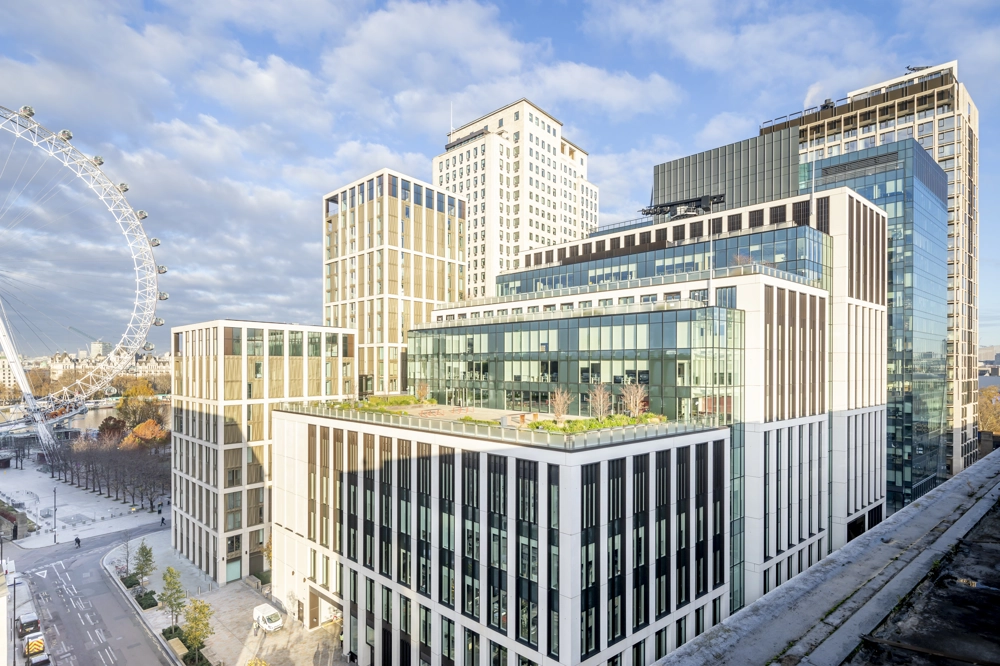All media enquires relating to L&G Group.
Legal & General urges Government to think local in order to kick-start efforts to level-up the UK
One year since its launch, the latest edition of the Legal & General (L&G) Rebuilding Britain Index (RBI) shows that the UK is yet to show significant signs of rebuilding. There has been progress on jobs, but housing and health have moved backwards resulting in no overall improvement in the Index since Q2 2021.
24 Jan 2022
Full press releaseFull report

- With the UK Government Levelling Up white paper imminent, over half of the individual metrics that create the index have declined over the previous 12-months. There has been progress on unemployment (+9), but the UK is taking a step back on access to health (-3) and housing (-3).
- Across the UK, London achieves the highest RBI score (66/100) and Wales the lowest (62/100) – but there is far more disparity at a local level – many of the poorest scoring areas are concentrated around coastal and rural areas in Southern England.
- This has led Nigel Wilson, CEO of L&G, to call for the UK to adopt an approach that empowers the wider regions and devolved nations of the UK to ensure that targeted regional investment can support in addressing need at a local level.
- Investment will be required to address wider physical and digital infrastructure and services and level-up the stark disparities seen at a local level.
- New findings show that 19% of UK adults and 35% of Londoners are thinking about relocating from their local area. The UK now has an opportunity to leverage the benefits of largescale post-pandemic migration of skilled workers from cities like London into coastal and rural communities.
Nigel Wilson, CEO at Legal & General: The more local we can be when looking at left-behind communities, the more we identify where real targeted efforts are required to make the greatest impact. Successful levelling-up requires an integrated approach between central and empowered local government, local suppliers and institutional finance.Devolution, and the creation of Metro Mayors, is already adding to the attractiveness of the UK as a place to invest. Connectivity and infrastructure will be key factors, both in retaining and attracting industry but also in retaining and attracting a workforce, particularly as the UK begins to embark on a new wave of post-pandemic migration.
Levelling up is still too often talked about as London, the wider regions and devolved nations. Arguably, this doesn’t go far enough. The South-East of England, for example, performs comparatively well as a region and is often overlooked when discussing Levelling-Up. But our research shows that many of the most left-behind authorities on our index are found in the region, particularly the coastal authorities.
RBI data shows local disparity
The findings highlight often stark differences at a local level. Crucially, these local disparities are evident across the whole of the UK and are heavily concentrated around coastal and rural authorities. Thanet (53/100), Hastings (55/100), Tendring (55/100) and Oldham (55/100) achieve the lowest RBI scores across the UK. These scores fall significantly short of the likes of Wokingham (75/100), Kensington & Chelsea (75/100) and Trafford (73/100).
This has led Nigel Wilson, CEO of L&G, to call for the UK to adopt an approach that empowers the wider regions and devolved nations of the UK. This means, for example, using the investment pull of Trafford and Salford, in the North-West of England, to deliver infrastructure and connectivity improvements that support the likes of Oldham and Burnley.
Post pandemic migration
Local infrastructure and connectivity will be increasingly important for such local authorities in order to maximise the potential opportunities arising from a wave of post-pandemic migration.
According to the findings, one-in-five people in the UK (19%) are considering relocating within the coming 12-months. However, the findings clearly demonstrate that it is the younger, degree-educated and high-earning segment of the population more intent on relocating. Similarly, the findings show a desire to move away from urban centres – with 35% of Londoners considering a relocation in the coming year – driven by a desire for a better perceived quality of life (30%), wanting to live in the countryside/by the coast (21%) and experience a lower cost of living (20%).
With people increasingly reconsidering where and how they want to live and how they derive their sense of place, local areas that sit outside of regional urban centres will need to ensure that they can attract and retain those considering a move. Digital and physical infrastructure and connectivity will be vital in achieving this, with the redistribution of income and skills that it would entail potentially creating more opportunities for economic and social development as a result.
RBI data – progress on jobs, reversal on health and housing
The RBI was established to measure the UK’s progress in levelling up on a quarterly basis, surveying 20,000 people and tracking social and economic progress across 52 measures, including Health and Social Care, Education, Housing, Jobs & Economic Prosperity, Environment, Energy, Transport and Digital.
Latest findings show that 31 of the 52 individual RBI measures have declined over the course of the last year, while only nine have shown improvement. Improvement has been largely concentrated in jobs & economic prosperity, where six of the eight measures have improved over this period, most notably the unemployment claimant count metric (+9 nationally). Conversely, all but one of the health and housing measures have declined over this period – with the biggest falls in housing meeting local needs (-3 nationally), house prices relative to average income (-3 nationally) and access to quality primary health care (-3 nationally).
Further information




